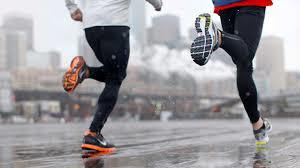According to an analysis of more than four million finishing times from 20 years of marathon data, fastest times are run on days when the temperature is in the 40s.
A recent article by Michael Greenstone of the Energy Policy Institute at the University of Chicago also suggests how much slower a runner's time will be at varying higher temperatures. For example, running that 26.2-mile race on a 60-degree day (like the recent NYC Marathon) will likely add about 12.5 minutes to your time, relative to a day in the 40's.
Runners looking to set a PR, therefore, should not only look for that "flat and fast" course, but a race even later in the year and perhaps farther north than they originally intended.

Published on November 06, 2017 18:39
